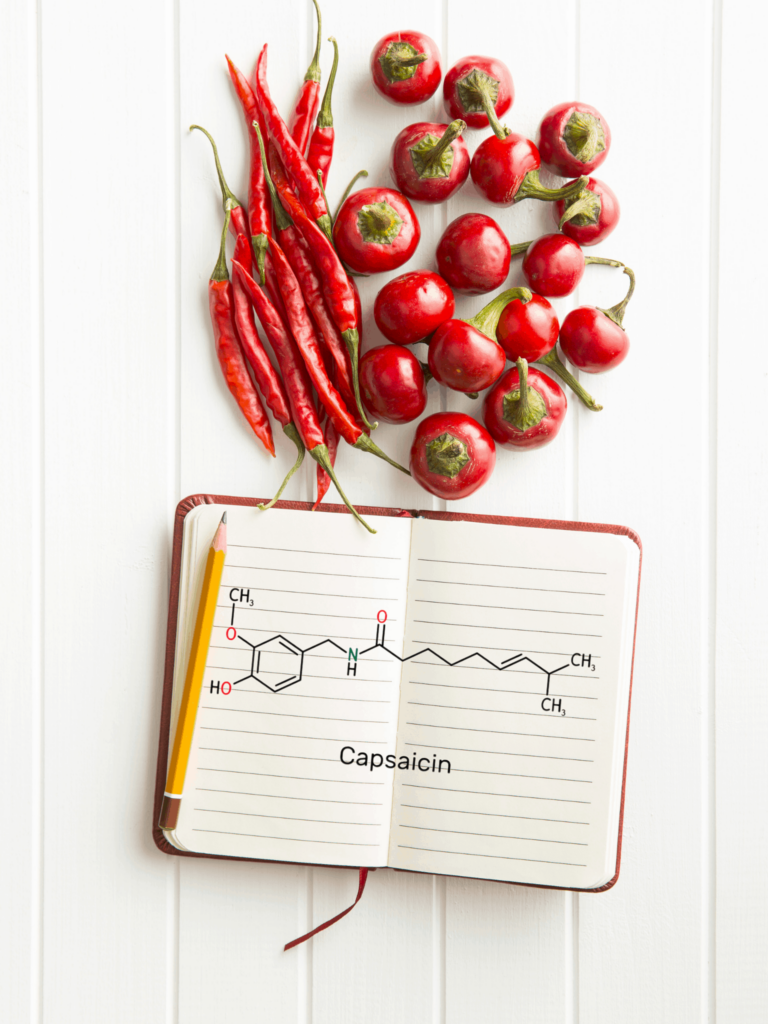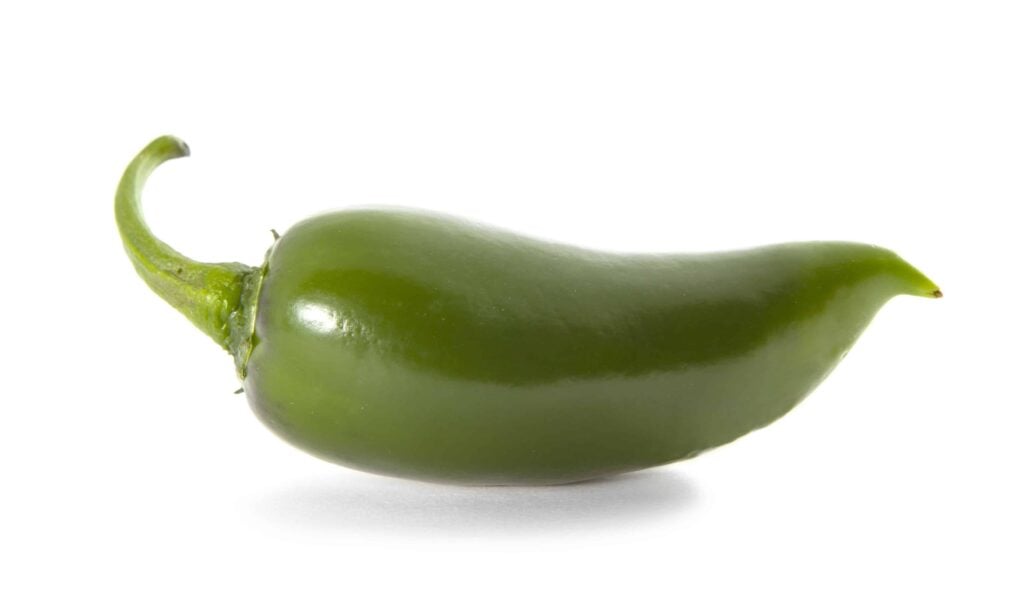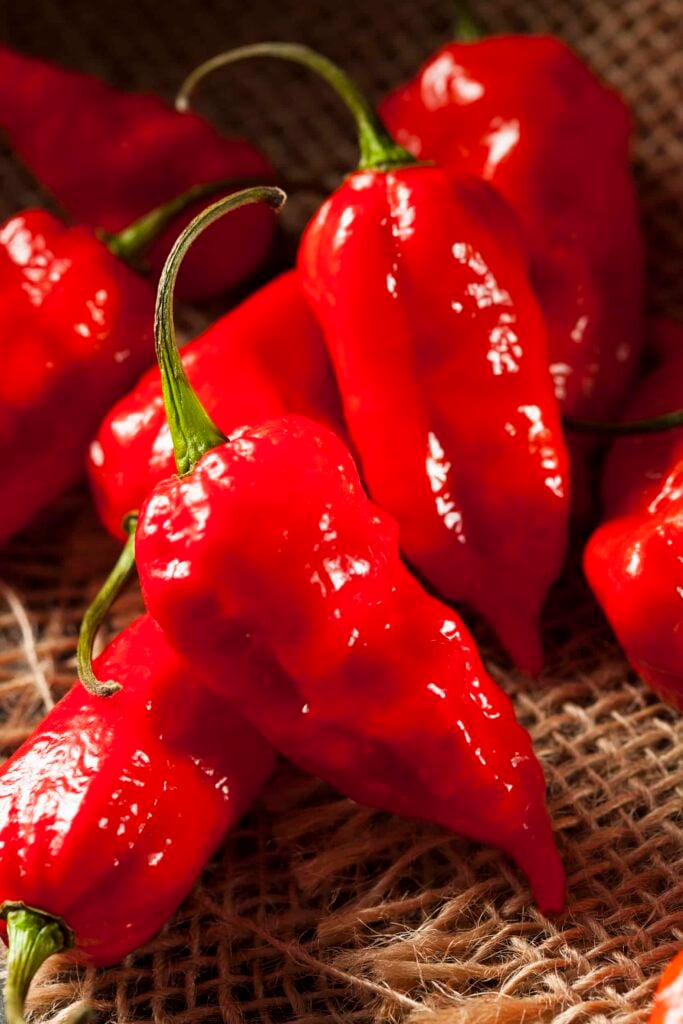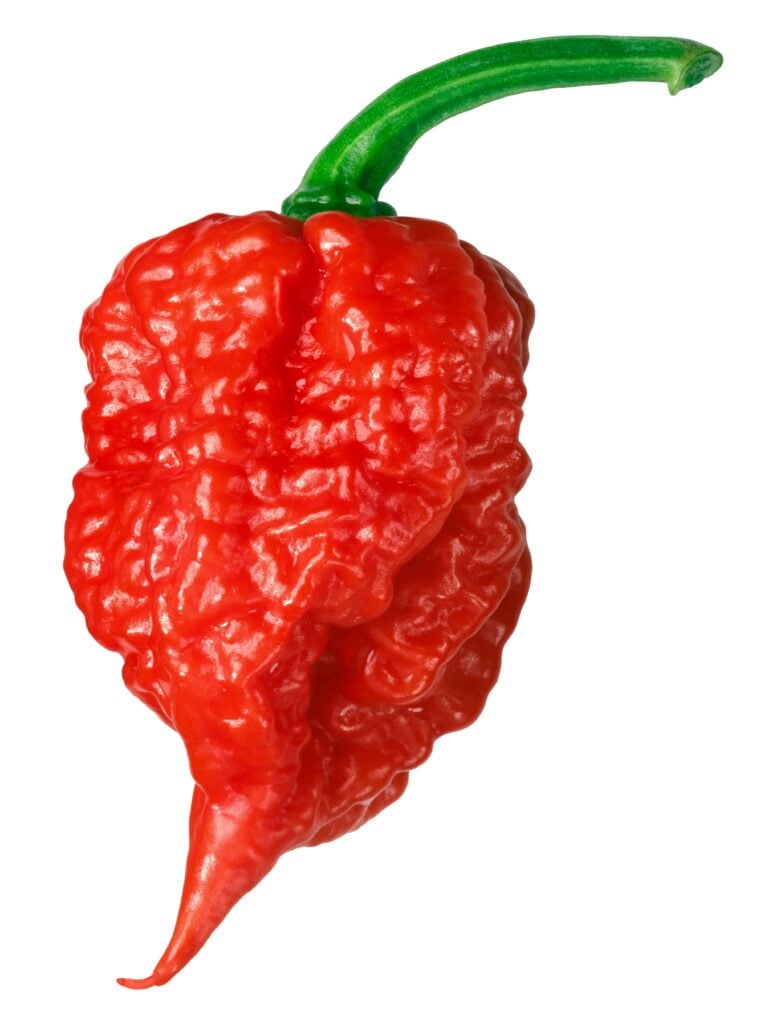For a long time, I said that the habanero was the real hottest pepper in the world. Call it Yucatecan pride, call it stubbornness, whatever. Unfortunately, science is not very supportive of my point of view and decided that the Scoville heat unit would be used to measure spiciness. So what is the Scoville scale for peppers?

In 1912 American pharmacist Wilbur Scoville devised a test to determine the heat level of different chilies. Originally called the Scoville Organoleptic Test, it was a scientific method of testing the pungency (heat) of a pepper. At least it was as scientific as it could get considering that it was still based on how humans detect spiciness.
I don’t know about you, but I will eat a spicy pepper have sweat and tears coming out, a swollen tongue and will still tell you it’s not that spicy. 🙂 Brace yourself ima bout to lay some science on you.
How Does The Scoville Scale Work?
Alcohol is used to extract the capsaicinoids from dried peppers. Then sugar water is used to dilute the capsaicinoids incrementally and given to a panel of testers. When the testers no longer discern heat the test is done.
What is the Scoville scale based on? Human taste buds.
The heat level or Scoville heat unit of the pepper is based on the amount of dilution it took for the majority of the human testers to no longer detect the heat. For example, if a pepper has a SHU (Scoville Heat Unit) of 100, that means the capsaicinoids had to be diluted 100 times for testers not to detect spiciness. This creates the pepper hotness scale.

Is 8000 Scoville Hot?
The thing about the Scoville scale is that it’s based on humans. So even while researching this article there is dissension in the ranks. Reputable sources have different Scoville unit values in their particular Scoville scale peppers list. Can you believe one even said the habanero pepper was medium? The nerve! 🙄
Overall when you deal in ranges, the sources start to agree more. For instance, orange habaneros come in anywhere between 150,000 SHU and 325,000 SHU. I know, I know drop the habanero already. I won’t, but here are a few more peppers on the peppers hotness scale to even the spread.
On the lowest rung of the pepper scale ladder is the sweet bell pepper ranging from 0 to 100 SHU. Yup, that means that at least one tester detected spiciness in a sweet bell pepper. It’s in good company with banana and pimento peppers. Although some sources put banana peppers between 100 and 1000 SHU. My advice, eat one and see for yourself. 🙂
A typical pepper in the 8000 SHU range is the jalapeno pepper and chile Puya. Some sources put the Jalapeno Scoville in the mild category between 2,500 and 5,000 SHU, and others say it naturally goes as high as 10,000 SHU. (A lot depends on Jalapeno variety.)

Depending on the luck of the draw and the Jalapeno you bite into, it could be as mild as the Basque Espelette pepper which measures 4000 SHU max, or Poblano peppers which come in between 1,000 and 1,500 SHU. (If you’ve had a chile relleno you most likely know how non-spicy a Poblano pepper is.)
If you’re twisting my arm to give you the definitive answer of is 8000 Scoville hot, then technically no it’s not. An 8000 SHU rating is considered moderate. In fact, anything between 3000 to 25,000 SHU is thought of as a medium heat level.
Peppers With More Scoville Heat Units
I promised I would even the spread, so here are some popular peppers we get asked about and how they rank on the Scoville scale. Peppers are listed from mid-level heat to very hot on the hot peppers scale.
- Serrano peppers range from 10,000 to 25,000 SHU.
- Cayenne peppers are between 30,000 to 50,000 SHU.
- Pequin peppers are 40,000 to 60,000 SHU.
- Thai chili Scoville heat units range from 50,000 to 100,000 SHU.
- Scotch bonnets on the Scoville scale are between 100,000 to 350,000 SHU.
- Chocolate habaneros register from 425,000 to 577,000 SHU.
For more peppers and how they rank, check out the Scoville Scale Peppers table below.
Habanero Scoville
Orange Habanero peppers range between 150,000 to 325,000 SHU (close to Scotch Bonnets). This similarity is one of the reasons that Scotch Bonnets vs Habanero comparisons happen a lot.
There are also many different types of Habanero peppers with varying heat levels. For example, there’s the Caribbean Red Habanero (300,000 to 445,000 SHU), Yellow Habanero (200,000 to 350,000 SHU) and Peruvian White Habanero (100,000 to 350,000 SHU). So the habanero Scoville rating is largely determined by the variety.
Ghost Pepper Scoville Scale
How many Scoville units are ghost peppers (Bhut Jolokia)? The ghost pepper Scoville is over 1 million SHU, but once you start growing it out of the Northeast India region where conditions are ideal for these hot peppers, the pepper may lose a few hundred thousand SHU. That’s because it no longer has the growing conditions it needs to reach that level of heat.
There was actually a study that corroborated what some growers already knew, environment has an effect on pepper heat levels. Don’t get too cocky though, the ghost pepper would still be close to 500,000 SHU which is still pretty hot.🥵

So What Is The Hottest Pepper On The Scoville Scale?
As of this writing, the big poppa on the Scoville scale peppers chart is the Carolina Reaper with 2.2 million SHU. Let me tell you though it’s not just a super hot pepper, it is delicious. 😋
The Carolina Reaper is the official hottest pepper on the Scoville scale, but there’s a contender named Pepper X (probably not its final name). It’s not available to the public yet because it has not been certified by Guinness world records, but once it is, it will become the hottest pepper in the world measuring over 3 million SHU.
It’s official. As of October 9, 2023, Pepper X has unseated the Carolina Reaper as the hottest pepper in the world. Pepper X is the new champion, with a Scoville rating of 2.693 million Scoville. Over a million Scoville more than the Carolina Reaper. Congratulations Pepper X!

You’ve read this far and you’re probably thinking I threw in the towel with my beloved habaneros. I can’t possibly still say that they are the “real” hottest pepper in the world. Well, get a few spicy margaritas in me and I may go into my spiel about it.
I still think my rationale is sound. Spicy peppers that have “beat” habaneros are usually hybrids. Franken-peppers where growers took different varieties of spicy peppers and meshed them together to create that pure capsaicin pepper that breaks the Scoville meter.
Pepper X is a great example of this. It took several cross breedings to produce this super, supreme, extreme, intense, insane and probably severe level of hotness pepper. Yet we’re still anxiously waiting for it and high-fiving Ed Curie from PuckerButt for bringing it to us.
Bringing it down a little, there’s only one pepper where I may be willing to accept defeat. The red savina measuring 350,000 to 855,000 SHU on the Scoville scale. It has a pretty cool story “the one red pepper in a field of orange habaneros.” I could live with the red savina being hotter than a habanero because it’s a mutant habanero and I’m ok with that.
» Related – Pepper Seeds: Where to Buy Carolina Reaper Seeds and More
Scoville Scale Chart For Common Peppers
As promised, here’s a Scoville units chart for some common peppers along with their SHU rating.
| Pepper Type | Scoville Heat Units (SHU) |
|---|---|
| Pure Capsaicin | 15 to 16 million |
| Pepper X | 2.693 million |
| Carolina Reaper | up to 2,200,000 |
| Trinidad Moruga Scorpion | up to 2,009,231 |
| Ghost Pepper | up to 1,041,427 |
| Chocolate Habanero | 425,000 to 577,000 |
| Red Savina | 350,000 to 577,000 |
| Orange Habanero | 150,000 to 325,000 |
| Fatalii | 125,000 to 325,000 |
| Scotch Bonnet | 100,000 to 350,000 |
| Thai Pepper | 50,000 to 100,000 |
| Cayenne | 30,000 to 50,000 |
| Tabasco Pepper | 30,000 to 50,000 |
| Serrano | 10,000 to 25,000 |
| Hungarian Wax Pepper | 5,000 to 10,000 |
| Jalapeno | 2,500 to 8,000 |
| Piment d’Espelette | 500 to 4,000 |
| Poblano | 1,000 to 1,500 |
| Pepperoncini | 100 to 500 |
| Banana Pepper | 0 to 500 |
| Bell Pepper | 0 to 100 |
» Related: Top 10 Hottest Peppers Chart
What Is The Future Of The Scoville Scale?
As I already explained, there are some shortcomings with the Scoville heat scale, like human taste buds. Even though testers go through training, not all taste buds taste the same. In some cases, results can vary up to 50%.
There is a more scientific, no humans required, test called High Performance Liquid Chromatography (HPLC) that measures in Asta Pungency Units. If you’re interested in this other method of testing be on the lookout for the article.
Closing Thoughts
So is there a short answer for What is the Scoville scale for peppers? I suppose I could have just said that it was a way to tell how much a pepper would hurt if you ate it, but then how could I get you in the feels? How could I explain my Yucatecan pride in my beloved habanero peppers? I love spicy peppers. We’ve grown almost every super hot out there and are anxiously awaiting Pepper X, but what can I say, I’m sentimental, you don’t forget your first. Orange habanero por vida. 🙂
Did you know that there’s also a Scoville scale for hot sauce? We ranked 11 sauces, including one of the hottest hot sauces available. 🔥
Related Posts

